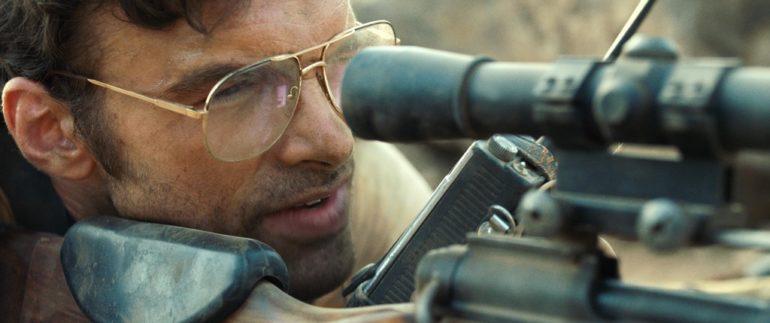Film Review: ’15 Minutes of War’ (L’Intervention)
By Mark Keizer
LOS ANGELES (Variety.com) – “Welcome to 1976,” announces the graphic that opens “15 Minutes of War,” the problematic account of the French special forces unit entrusted with saving a busload of hijacked school children from terrorists in Djibouti, which was, at the time, France’s last remaining African colony. To this, one can only respond, “Welcome to 2019,” when a straightforward thriller featuring French snipers heroically gunning down Africans fighting against French colonial rule seems disturbingly out-of-touch.
Franco-Canadian director Fred Grivois (“Through the Air”) turns the screws effectively enough, but ignoring the controversies baked into this true story and focusing solely on military procedures and sharpshooting tactics is to trade uncomfortable historical context for big screen excitement. “15 Minutes of War” (“L’Intervention” in French-speaking territories) didn’t even clear $500,000 when released in France earlier this year. U.S. ticket buyers unaware of the film’s hometown politics should vaguely appreciate this lean, workmanlike hostage drama when it rolls out in a handful of cities and on demand.
Although heavily fictionalized here, the story is notable in contemporary French history because the special unit tasked with taking down the hijackers would later become the celebrated GIGN (Le Groupe d’intervention de la gendarmerie nationale). To this day, the GIGN tackles high-profile hostage rescue and counter-terrorism crises including the 2015 search for the Charlie Hebdo killers.
The pre-GIGN version of the group gets rolling after unit commander André Gerval (Alban Lenoir) is summoned to headquarters and told that terrorists in the French colony of Djibouti have hijacked a school bus with 21 children onboard and are demanding France’s permanent withdrawal from the region. After a failed sprint to neighboring Somalia, the bus is stuck in No Man’s Land between the French and Somali borders. The French government (represented by no-nonsense Josiane Balasko), fearing a bloodbath, tells André to assemble his team and, along with “CIA hippie” Phil Shafer (Ben Cura), head to Djibouti and size up the situation while diplomacy runs its course.
With its hot desert locale and “The Magnificent Seven” collection of rifle-toting tough guys, Grivois attempts something akin to a classic American Western. His Gallic “The Wild Bunch” includes Lorca (David Murgia), who plans on proposing to his girlfriend; Campère (Seth Rogen lookalike Michaël Abiteboul), whose advancing age is the source of the film’s only stabs at humor; and Larrain (Guillaume Labbé), an enigmatic sniper nicknamed “The Machine.” Grivois, DP Julien Meurice and editor Baxter make the stifling heat and mounting pressure palpable, but some of their choices are baffling, including a rather silly, Sam Peckinpah-style shot of our five heroes walking in slow-motion toward camera. There are also two split-screen montages (including one that ends with a kitschy, lazy Susan effect) that break the spell of the film’s well-established sense of place.
Should diplomacy fail, André’s plan is for five snipers to take out five terrorists with one simultaneous shot, a gutsy idea that runs afoul of a cigar-chomping general. Further complicating things is the presence of an American teacher on the bus. Jane Andersen (Olga Kurylenko, “Quantum of Solace”) initially arrived at the hostage site offering to help. When rebuffed, she hightails it onto the bus because “my life is with these children and I’ll do anything to protect them!” A fairly unconvincing character, Jane is brought in to balance out the testosterone and because Grivois, who co-wrote the script with Jérémie Guez and Ileana Epsztajn, refuses to let the hijackers, their stories and their grievances, carry the scenes on the bus. Instead, he chooses a former Bond Girl to help save the day and remain undaunted against top dog hijacker, Barkhad (a menacing but never over-the-top Kevin Layne).
With André’s team wilting in the desert heat and the hostage-takers getting antsy, the eponymous quarter-hour begins. Given that France continues to grapple with its colonial past (in early 2017, eventual French president Emmanuel Macron called France’s colonial rule in Algeria “a crime against humanity”), seeing dozens of anonymous Somali soldiers, charged with protecting the hijackers, take gruesome shots to the head is more sickening than satisfying. Somalia, which earned its independence from European colonialist rule in 1960, is depicted here as a nation of lousy marksmen easily picked off by highly-trained French snipers who never seem to miss.
Even if that’s exactly how it went down, as cinema it’s a misread of what today’s “woke” audiences can comfortably stomach. Especially because Grivois’ purpose is not to force a conversation about France’s colonial past or a comparison between Africa then and now. As the body count increases in this tense but troublingly context-free drama, he mistakenly believes we’ll gladly put politics aside to revel in the French gift for the kill shot.

